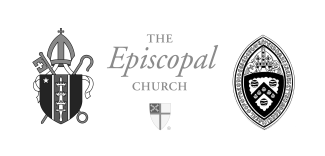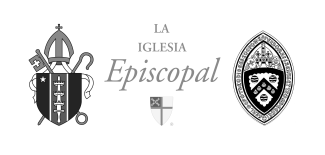Bishop Julia E. Whitworth of the Diocese of Massachusetts and Bishop Douglas J. Fisher of the Diocese of Western Massachusetts issued the following joint statement on June 16, 2025, in support of the Massachusetts Indigenous legislative agenda.
June 16, 2025
Dear faithful in the Commonwealth of Massachusetts,
As your bishops, we have committed ourselves to the spiritual work of racial reconciliation. This includes, but is not limited to, the irreparable harm done to native people, lands and culture begun by European colonists in the 17th century.
The Episcopal Church formally repudiated the Doctrine of Discovery in 2009 rejecting the flawed theology that put God on the side of death and destruction, but the generational trauma of cultural genocide has not been publicly addressed by the church in the Commonwealth. We address it here in the hope of the Easter event and in faith, with humility. We invite you to be part of the work of repair.
For generations we have lived, worshipped and engaged God’s mission on the unceded land of native peoples. From the coastal lands of the Wampanoag, Pokanoket, Massachusett and Patuxet, to the central lands of the Nipmuc and Agawam and to the western lands of the Pocumtuc, Nonotuck, Mohican and the Dawnland Confederacy, the artificial borders of states and dioceses have largely ignored the rights of the first people of this place. We wish for this ignorance to end in our time.
Since 2022, our two dioceses have shared a joint recognition of Indigenous Peoples' Day. In 2025, this gathering will mark the 350th anniversary of the beginning of Metacomet’s Rebellion (King Philip's War) with a pilgrimage on Monday, October 13, to Deer Island, MA – the internment site where hundreds of Native people from the “praying towns” died from exposure and starvation in the winter of 1675-1676.
As we prepare for this landmark commemoration, we call on all of our worshipping communities to mark Sunday, October 12, 2025, as a Day of Remembrance and Lamentation for the anguish caused by the expulsion, enslavement, and genocide of Native people across our Commonwealth. Further, we encourage you to take part in the educational, formational opportunities that will precede our local commemorations on Sunday, October 12, and our pilgrimage on Monday, October 13. We have much to learn together and trust that the Spirit is with us in our desire to be present to the sorrow left in the land. All we can do is bring our souls to the place and let the place tell the story to our souls.
Our commemoration is in the nascent planning stages with the support of indigenous people in Massachusetts whose ancestors survived the Deer Island expulsion, and who live among us as witnesses to Native resilience, strength and endurance. While this observance is months away, there is something critically important we can do today for our Native neighbors. We can support the MA Indigenous Legislative Agenda.
The Province I Indigenous Peoples' Justice Network has commended all five legislative priorities:
1. Remove Racist Mascots: Prohibit Native American mascots in Massachusetts public schools.
2. Honor Indigenous Peoples' Day: Replace Columbus Day with Indigenous Peoples' Day to celebrate Indigenous resilience and survival. The change acknowledges the true histories of colonialism, genocide and racism that Native peoples have experienced and continue to face.
3. Celebrate and Teach Native American Culture & History: Ensure that schoolchildren in Massachusetts learn about Native American history, culture, and current issues.
4. Protect Native American Heritage: Ensure Native American funerary objects, sacred objects, and objects of cultural patrimony held in governmental or non-profit collections are not sold for profit.
5. Support the Education and Futures of Native Youth: Improve educational outcomes and opportunities for American Indian and Alaska Native students.
If you have made the Sacred Ground journey, you might agree that these things are the very least we can do to begin to repair what has been broken. We must care about the issues that are of utmost importance to our Indigenous neighbors and be witnesses of the injustices that still harm and scar native youth. These five pieces of legislation will make the Commonwealth of Massachusetts a safer, healthier, more respectful environment for native people. As bishops of The Episcopal Church, we support this legislation and the rights of Indigenous people to be the stewards of their own culture and the keepers of their own sacred stories. This is our first step, but it will not be our last.
In the hope of the risen Christ, Creator Sets Free.[i]
The Rt. Rev. Julia E. Whitworth
Bishop, Massachusetts
The Rt. Rev. Douglas J. Fisher
Bishop, Western Massachusetts
[i] First Nations Version: An Indigenous Translation of the New Testament, InterVarsity Press, 2021
Los obispos episcopales de Massachusetts apoyan la agenda legislativa indígena de Massachusetts
16 de junio de 2025
Queridos fieles de la Mancomunidad de Massachusetts:
Como sus obispos, nos hemos comprometido con la labor espiritual de reconciliación racial. Esto incluye, entre otros, el daño irreparable causado a los pueblos, las tierras y la cultura indígenas, iniciado por los colonizadores europeos en el siglo XVII.
La Iglesia Episcopal repudió formalmente la Doctrina del Descubrimiento en 2009, rechazando la teología errónea que colocaba a Dios del lado de la muerte y la destrucción. Sin embargo, el trauma generacional del genocidio cultural no ha sido abordado públicamente por la iglesia en la Commonwealth. Lo abordamos aquí con la esperanza de la Pascua y con fe y humildad. Los invitamos a ser parte de la labor de reparación.
Durante generaciones, hemos vivido, rendido culto y participado en la misión de Dios en las tierras no cedidas de los pueblos indígenas. Desde las tierras costeras de los Wampanoag, Pokanoket, Massachusetts y Patuxet, hasta las tierras centrales de los Nipmuc y Agawam, y hasta las tierras occidentales de los Pocumtuc, Nonotuck, Mohican, y la Confederación Dawnland, las fronteras artificiales de los estados y las diócesis han ignorado en gran medida los derechos de los primeros habitantes de este lugar. Deseamos que esta ignorancia termine pronto.
Desde 2022, nuestras dos diócesis han compartido un reconocimiento conjunto del Día de los Pueblos Indígenas. En 2025, esta reunión conmemorará el 350º aniversario del inicio de la Rebelión de Metacomet (también conocida como la Guerra del Rey Felipe) con una peregrinación el lunes 13 de octubre a Deer Island, Massachusetts, el lugar de confinamiento donde cientos de indígenas de los "pueblos de oración" murieron de frío y hambre durante el invierno de 1675-1676.
Mientras nos preparamos para esta conmemoración histórica, hacemos un llamado a todas nuestras comunidades de fe para que conmemoren el domingo 12 de octubre de 2025 como Día de Recuerdo y Lamentación por la angustia causada por la expulsión, la esclavitud y el genocidio de los pueblos indígenas en nuestra Mancomunidad. Además, los animamos a participar en las oportunidades educativas y formativas que precederán a nuestras conmemoraciones locales el domingo 12 de octubre y a nuestra peregrinación el lunes 13 de octubre. Tenemos mucho que aprender juntos y confiamos en que el Espíritu nos acompaña en nuestro deseo de estar presentes ante el dolor que aún persiste en la tierra. Solo podemos traer nuestras almas al lugar y dejar que este nos cuente la historia.
Nuestra conmemoración se encuentra en sus primeras etapas de planificación con el apoyo de los pueblos indígenas de Massachusetts, cuyos antepasados sobrevivieron a la expulsión de Deer Island y que viven entre nosotros como testigos de la resiliencia, la fuerza y la resistencia de los indígenas. Aunque esta celebración aún está a meses de distancia, hay algo crucial que podemos hacer hoy por nuestros vecinos indígenas: apoyar la Agenda Legislativa Indígena de Massachusetts.
La Red de Justicia de los Pueblos Indígenas de la Provincia 1 elogió las cinco prioridades legislativas:
1. Eliminar las mascotas racistas: prohibir las mascotas nativas americanas en las escuelas públicas de Massachusetts.
2. Honrar el Día de los Pueblos Indígenas: Sustituir el Día de Colón por el Día de los Pueblos Indígenas para celebrar la resiliencia y la supervivencia de los pueblos indígenas. Este cambio reconoce las verdaderas historias de colonialismo, genocidio y racismo que los pueblos indígenas han experimentado y siguen enfrentando.
3. Celebrar y enseñar la historia y la cultura de los nativos americanos: garantizar que los escolares de Massachusetts aprendan sobre la historia, la cultura y los problemas actuales de los nativos americanos.
4. Proteger el patrimonio de los nativos americanos: garantizar que los objetos funerarios, los objetos sagrados y los objetos de patrimonio cultural de los nativos americanos que se conservan en colecciones gubernamentales o sin fines de lucro no se vendan con fines de lucro.
5. Apoyar la educación y el futuro de los jóvenes nativos: Mejorar los resultados y las oportunidades educativas para los estudiantes indígenas estadounidenses y nativos de Alaska.
Si has recorrido el camino de Tierra Sagrada, quizás estés de acuerdo en que estas cosas son lo mínimo que podemos hacer para empezar a reparar lo que se ha dañado. Debemos preocuparnos por los problemas que son de suma importancia para nuestros vecinos indígenas y ser testigos de las injusticias que aún dañan y marcan a la juventud indígena. Estas cinco leyes harán de la Mancomunidad de Massachusetts un entorno más seguro, saludable y respetuoso para los pueblos indígenas. Como obispos de la Iglesia Episcopal, apoyamos esta legislación y el derecho de los pueblos indígenas a ser los guardianes de su propia cultura y los guardianes de sus propias historias sagradas. Este es nuestro primer paso, pero no será el último.
En la esperanza de Cristo resucitado, el Creador nos libera. [i]
La Rt. Rev. Julia E. Whitworth
Obispa, Massachusetts
El Rt. Rev. Douglas J. Fisher
Obispo, oeste de Massachusetts
[i] Versión de las Primeras Naciones: Una traducción indígena del Nuevo Testamento, InterVarsity Press, 2021


